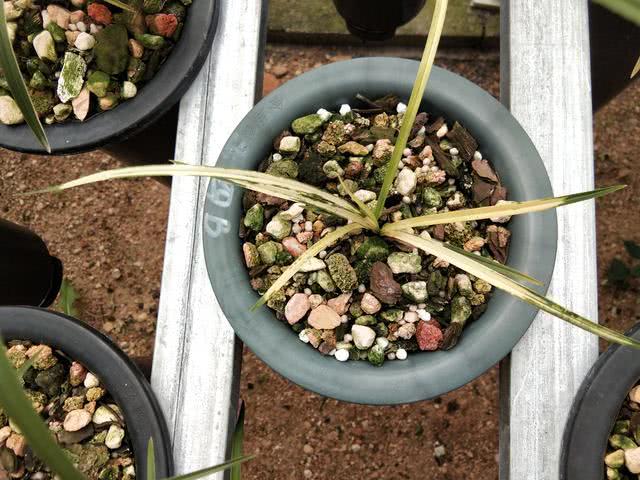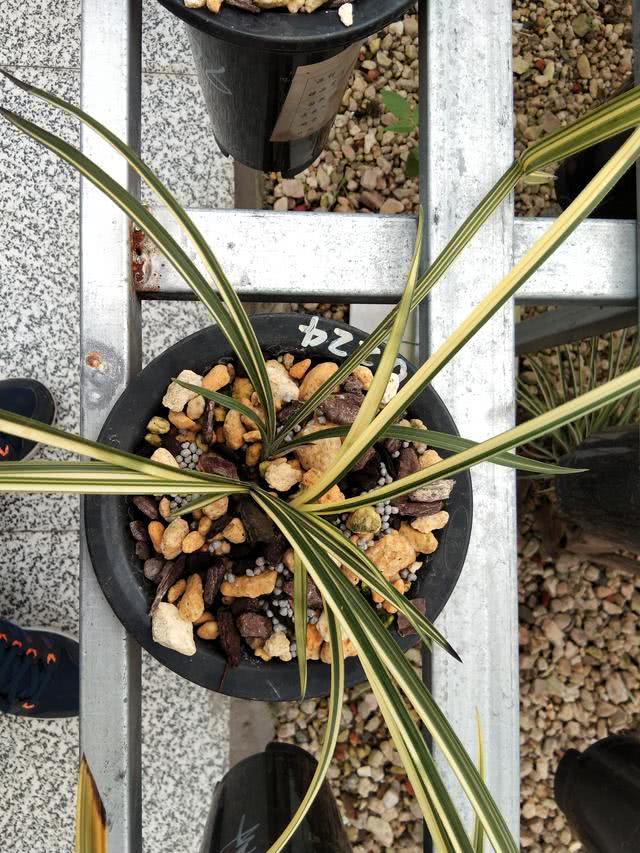4 tips for novice orchids to raise orchids well is not just about reading a few books.

With the continuous improvement of the material level of our country, more and more people join the team of raising orchids. This has played a role in promoting the development of the national orchid cause. However, this "fresh blood" will also take some detours when experiencing the fun of raising orchids. I also come step by step in this way. Here, I hope to elaborate on some of the problems that many beginners will encounter one by one through my own understanding. If there is anything less than that, I hope the majority of Lanyou can correct it.
One. There should be a step-by-step process from grass walking to variety seedling.
This first point is indeed a clich é, but it is the reason why many people stumble. Why? The reason is simple: the price of orchids has generally risen in the past two years, and many people are eager for quick success and instant benefits, and they "enter the market" hastily before they know the way to it. This lack of experience, there is no reason not to lose! For friends who are new to orchids, this tip is the most important. Cheap and good quality grass is a good helper to accumulate experience. Everyone knows that raising orchids does not happen overnight, and it is inevitable to "pay tuition fees" in the process of groping. Then why do we spend a lot of money on those valuable varieties? Wouldn't it be wrong to pay such a "tuition fee"? It will also add pressure to you invisibly. But walking grass is different. It doesn't matter if you die. The key is to find out the reason and prescribe the right medicine and try not to make the same mistake next time. I think everyone knows this truth, the important thing is how you carry it out in a down-to-earth manner.
Two. Grass and seedlings should be treated differently.
Everyone knows that the grass has fast reproduction and strong disease resistance, and the varieties and seedlings are much inferior. Lan you, who have a little experience, must know that those "nobles" who are sick in the same environment in summer are always "aristocrats", while "mainlanders" are always safe and sound; they can last a long time in places with poor ventilation, but the seedlings of the varieties will show you in two or three days; the seedlings of the same watered varieties will rot their roots very carefully, and they will be fine no matter how you water the grass. Although we all belong to the same family and belong to the same family, maintenance can not be treated equally. This is not only reflected in disease resistance, but also in other aspects, including light, water, fertilizer and so on.
Three. Do not gamble easily on grass, do not pursue new flowers
At present, we can often see that the downhill orchid of so-and-so is worth tens of thousands of dollars in various media, and the new flower chosen by so-and-so is priceless. Many people spend a lot of money with the idea of getting rich overnight to buy gambling grass and new flowers that are expected to produce good flowers. And for inexperienced novices, you should never act rashly. Because the orchid itself is a plant with strong variability. Its growth environment (including: light, temperature, humidity, soil, etc.) will affect its opening. This is why a downhill grass that is expected to produce good flowers needs to be reflowered for several years in a row to affirm its value. Obviously, it is impossible to select such "potential stocks" without deep eyesight. Besides, these "named" gambling grass and new flowers are often worth a lot of money, in case they are not their ideal flowers. It costs a lot of money! We can cite the most obvious example: Chunlan in Sichuan is famous for its rich flowers and colors, but many people find that rich and colorful flowers will lose a little over time. This is what the environment causes. This example warns us: even if the new flowers in front of you are certainly not fakes, you can't start them easily. For experts with rich "actual combat" experience, they take a fancy to a grass that will first pay part of the money and wait to see the situation of re-blooming a few years later before deciding to start, of course, the price will be several percent higher than the original. And now many orchid vendors use walking grass to pretend to be new flowers of downhill grass, and the price is not high. The means of counterfeiting are indeed quite clever: Longgen, all kinds of leaf art and so on are all in order to reach the peak. So it's best not to get involved in this area for beginners. In a word: Lanzhou City is risky and should be cautious in entering the market.
Four. how many recommendations are there?
1. Resale grass: orchids originating in China flow into other areas through a complete set of modern farming and then flow into China. Such grasses grow in a constant temperature, humidity and sterile orchid chamber. And most farmers also spray a variety of hormones. Once they leave such an environment, it is easy for them to "become acclimatized". Those who pour grass and get sick are not in the minority; it is also common not to sprout or blossom. Although the price is much cheaper, I still don't recommend it for beginners.
2. Tissue culture plantlets: in short, it is "cloning". At present, some varieties have been cloned successfully in China, but very few of them really raise tissue culture seedlings to flowering. Such seedlings grow in a harsher environment and have higher requirements for the environment. We only need to look at its roots to identify tissue culture plants. if the roots are as thin as instant noodles, they are tissue culture seedlings.
3. Grass: low price is its advantage, but its "dead point" is its lack of nutrients, poor growth potential and weak disease resistance. Grass often takes 3-5 years to rejuvenate, relatively speaking, strong seedlings have adequate nutrient supply, strong growth, high seedling emergence rate, and flowers can be seen in the same year. Therefore, we should not hesitate to choose strong seedlings.
4. Other things: for example, we don't want to buy grass with single seedlings, hormone seedlings and inscriptions on the stalls.
It is said that if you want to raise orchids well, it is not just a matter of reading a few books. It is best to sum up in failure, experience in growth, and choose what is right for you.
This article comes from the original contribution of Fish Milan Flower, please contact the official account of Fish Milan Flower for reprint!
- Prev

The coolest thing I've ever done in my life is to make my best friend lose 30 jin in 45 days.
A Zhihu user once said: when God created man, he divided people into two kinds: one is those who can lose weight, and the other is those who can't lose weight. People who can lose weight can also be achieved with their bare hands. People who can't lose weight use any tool.
- Next

Don't be reluctant to water orchids, watering more, watering, ventilating, fertilizing, fertilizing, and backwater.
Recently, it is autumn again, and winter has entered in the north. Orchid friends are all talking about watering. Some orchids compare orchids with cactus balls. One is produced in rainy and humid areas in the south, and the other is produced in the desert.
Related
- Wuhan Hospital Iron Tree Blooming Result Was Instantly Frightened by the Gardener Master
- Which variety of camellia is the most fragrant and best? Which one do you like best?
- What is the small blue coat, the breeding methods and matters needing attention of the succulent plant
- Dormancy time and maintenance management of succulent plants during dormancy
- Minas succulent how to raise, Minas succulent plant pictures
- What are the varieties of winter succulent plants
- How to raise succulent plants in twelve rolls? let's take a look at some experience of breeding twelve rolls.
- Attention should be paid to water control for succulent plants during dormant period (winter and summer)
- Watering experience of twelve rolls of succulent plants
- Techniques for fertilizing succulent plants. An article will let you know how to fertilize succulent plants.

